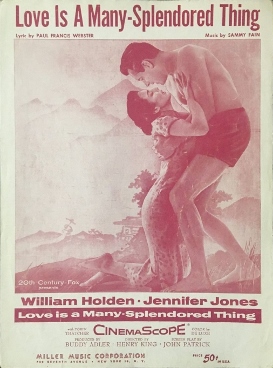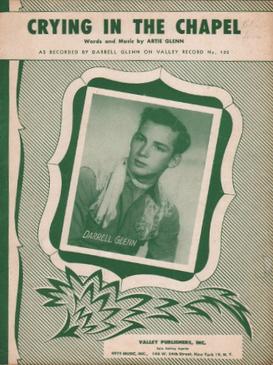Mambo is a genre of Cuban dance music pioneered by the charanga Arcaño y sus Maravillas in the late 1930s and later popularized in the big band style by Pérez Prado. It originated as a syncopated form of the danzón, known as danzón-mambo, with a final, improvised section, which incorporated the guajeos typical of son cubano. These guajeos became the essence of the genre when it was played by big bands, which did not perform the traditional sections of the danzón and instead leaned towards swing and jazz. By the late 1940s and early 1950s, mambo had become a "dance craze" in Mexico and the United States as its associated dance took over the East Coast thanks to Pérez Prado, Tito Puente, Tito Rodríguez and others. In the mid-1950s, a slower ballroom style, also derived from the danzón, cha-cha-cha, replaced mambo as the most popular dance genre in North America. Nonetheless, mambo continued to enjoy some degree of popularity into the 1960s and new derivative styles appeared, such as dengue; by the 1970s it had been largely incorporated into salsa.

"Rock Around the Clock" is a rock and roll song in the 12-bar blues format written by Max C. Freedman and James E. Myers in 1952. The best-known and most successful rendition was recorded by Bill Haley & His Comets in 1954 for American Decca. It was a number one single for two months and did well on the United Kingdom charts; the recording also reentered the UK Singles Chart in the 1960s and 1970s.

Dámaso Pérez Prado was a Cuban bandleader, pianist, composer and arranger who popularized the mambo in the 1950s. His big band adaptation of the danzón-mambo proved to be a worldwide success with hits such as "Mambo No. 5", earning him the nickname "King of the Mambo". In 1955, Prado and his orchestra topped the charts in the US and UK with a mambo cover of Louiguy's "Cherry Pink ". He frequently made brief appearances in films, primarily of the rumberas genre, and his music was featured in films such as La Dolce Vita.

"Love Is a Many-Splendored Thing" is a popular song with music by Sammy Fain and lyrics by Paul Francis Webster. The song appeared first in the movie Love Is a Many-Splendored Thing (1955), and it won the Academy Award for Best Original Song in 1956. From 1967 to 1973, it was also used as the theme song to Love is a Many Splendored Thing, the soap opera based on the movie.
"A Blossom Fell" is a popular song written by Howard Barnes, Harold Cornelius, and Dominic John and published in 1954.
"Answer Me" is a popular song, originally titled "Mütterlein", with German lyrics by Gerhard Winkler and Fred Rauch. "Mütterlein" was published on 19 April 1952. English lyrics were written by Carl Sigman, and the song was published as "Answer Me" in New York on October 13, 1953. Contemporary recordings of the English lyric by Frankie Laine and David Whitfield both topped the UK Singles Chart in 1953.
"(How Much Is) That Doggie in the Window?" is a popular novelty song written by Bob Merrill and first registered on September 25, 1952, as "The Doggie in the Window". On January 27, 1953, its sheet music was published in New York as "(How Much Is) That Doggie in the Window".

Albert Edward Calvert was an English trumpeter successful in the 1950s. Between 1953 and 1958 he achieved seven instrumental hits on the UK Singles Chart, including the two 1955 chart-toppers "Oh, Mein Papa" in 1953 and "Cherry Pink ".
"Stranger in Paradise" is a popular song from the musical Kismet (1953), credited to Robert Wright and George Forrest. Like almost all the music in that show, the melody was adapted from music composed by Alexander Borodin (1833–1887), in this case, the "Gliding Dance of the Maidens", from the Polovtsian Dances in the opera Prince Igor (1890). The song in the musical is a lovers' duet and describes the transcendent feelings that love brings to their surroundings. Later versions were mostly edited to be sung by male solo artists.
"It's April Again" is a popular song that first appeared in the 1952 film Moulin Rouge. It became a No. 1 hit in the UK Singles Chart when recorded by Mantovani. The music for the film was written by Georges Auric; the original French lyrics were by Jacques Larue, with the English words by William Engvick. The Auric-Engvick song was published in 1953.
"¿Quién será?" is a bolero-mambo song written by Mexican composers Luis Demetrio and Pablo Beltrán Ruiz. Beltrán recorded the song for the first time with his orchestra in 1953. Pedro Infante, for whom the song was written, recorded it in 1954.
"The Poor People of Paris" is a US pop song that became a number-one instrumental hit in 1956. It is based on the French language song "La goualante du pauvre Jean", with music by Marguerite Monnot and words by René Rouzaud. Edith Piaf had one of her biggest hits with the original French version.
"You'll Never Know", sometimes referred to as "You'll Never Know " in later years, is a popular song with music written by Harry Warren and the lyrics by Mack Gordon. The song is based on a poem written by a young Oklahoma war bride named Dorothy Fern Norris.
"April in Portugal" is a popular song, also named "The Whisp'ring Serenade." The music was written by Raul Ferrão with Portuguese lyrics by José Galhardo as a fado named "Coimbra", about the city of that name in 1947. English lyrics written by Jimmy Kennedy were set to the music, though many of the most popular versions of the song were instrumentals. It is one of the signature songs of Portuguese singer and fadista Amália Rodrigues. It was also recorded in French by the tenor Luís Piçarra.
"Deep Purple" was the biggest hit written by pianist Peter DeRose, who broadcast, 1923 to 1939, with May Singhi as "The Sweethearts of the Air" on the NBC radio network. "Deep Purple" was published in 1933 as a piano composition. The following year, Paul Whiteman had it scored for his suave "big band" orchestra that was "making a lady out of jazz" in Whiteman's phrase. "Deep Purple" became so popular in sheet music sales that Mitchell Parish added lyrics in 1938.

"Crying in the Chapel" is a song written by Artie Glenn and recorded by his son Darrell Glenn. The song was released in 1953 and reached number six on the Billboard chart.
"Theme from A Summer Place" is a song with lyrics by Mack Discant and music by Max Steiner, written for the 1959 film A Summer Place, which starred Sandra Dee and Troy Donahue. It was recorded for the film as an instrumental by Hugo Winterhalter. Originally known as the "Molly and Johnny Theme", this lush extended cue, as orchestrated by Murray Cutter, is not the main title theme of the film, but an oft-heard secondary love theme for the characters played by Dee and Donahue. The theme has become a canonical representation of the easy listening genre, and is considered by some to be the definitive easy listening track of all time.
"Hey Joe!" is a 1953 popular song written by Boudleaux Bryant. It was recorded by Carl Smith for Columbia Records on 19 May 1953 and spent eight weeks at No. 1 on the US country music chart, marking Bryant's first no. 1 record. He later wrote songs with his wife Felice for The Everly Brothers. The song was first published in New York on July 17, 1953 as "Hey, Joe".
Ralph Marterie was an Italian big-band leader born in Acerra, Italy.
"Music to Watch Girls By" was the first Top 40 hit by Bob Crewe using his own name, recorded by his group The Bob Crewe Generation. The music was composed by Sidney "Sid" Ramin.





